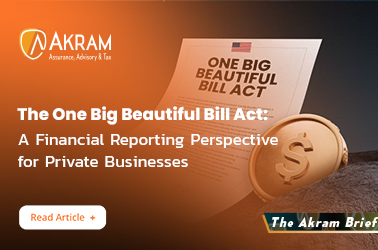Biden’s Tax Proposals would tax Corporations and High-Income Earners
The US Treasury released a 114-page “Green Book” general explanation of tax proposals included in President Joe Biden’s fiscal year (FY) 2022 budget submission to Congress on May 28, 2021.
The President’s budget proposes to increase IRS funding by $1.3 billion to $13.2 billion as part of efforts to collect $778 billion over 10 years from increased tax compliance measures. President Biden proposes key corporate and individual tax increases:
Corporate Tax Increase Proposals:
- Increasing the corporate tax rate from 21% to 28%;
- Increasing the GILTI tax rate to reducing the Section 250 deduction from 50% to 25% (to achieve a 21% GILTI rate assuming a 28% corporate income tax rate), applying GILTI on a per-country basis, and eliminating the 10% deduction for qualified business asset investment (QBAI);
- Repealing the deduction for foreign derived intangible income (FDII) and using the resulting revenue to expand R&D investment incentives;
- Imposing a 15% minimum tax on corporations with book income above $2 billion;
- Eliminating tax preferences for fossil fuels (including the enhanced oil recovery credit, expensing for intangible drilling costs, and percentage depletion for oil and natural gas wells) and reinstating Superfund taxes;
Individual Tax Increase Proposals:
- Increasing the current top individual income tax rate from 37% to 39.6%;
- Taxing capital gain and qualified dividend income at ordinary rates for individuals with adjusted gross income above $1 million;
- Limiting the current step-up in basis rule by treating transfers of certain appreciated property by gift or on death as realization events, with exclusions provided for certain transfers, a general $1 million exclusion (per spouse) indexed for inflation, and special rules provided for certain family-owned and -operated businesses;
- Broadening application of the 3.8% net investment tax;
- Ending “carried interest” capital gains treatment of certain partnership investment income;
- Extending permanently the current limitation on certain excess business losses, and
- Eliminating like-kind exchange tax treatment for real estate gains greater than $500,000 ($1 million for joint returns).
- Key moderate Democrats in Congress have stated that they will not support increasing the US corporate tax rate above 25%. While reinstating the top individual income tax rate to the 39.6% level appears to have broad support among Congressional Democrats, a number of moderate Democrats in the House and Senate have expressed objections or concerns about President Biden’s proposals to sharply increase taxes on investment income and make changes to step-up in basis tax rules.
President’s Biden tax proposal uncertainty and proposed effective dates
While the overall outlook for action on President Biden’s tax proposals is uncertain, Congress in recent history has approved tax rate increase proposals only on a prospective basis. It is unusual for an administration to propose a retroactive effective date for a tax increase based on the release of a document like the American Families Plan, particularly when the document lacks important details, such as effective dates.
President Biden’s tax increase proposals will need the support of all 50 Democratic Senators and nearly all House Democrats to be enacted over the expected objections of Congressional Republicans. Moderate Democrats in the House and Senate may seek to scale back some of President Biden’s proposals and may seek to block others.
The President’s budget generally assumes that most of the tax increase proposals would be effective for tax years beginning after December 31, 2021, while some would be effective for tax years beginning after the date of enactment. However, the President’s proposal to increase capital gains tax rates is proposed to be retroactively effective “for gains required to be recognized after the date of announcement.” Biden administration officials have indicated that “date of announcement” is meant to be April 28, 2021 — the date President Biden announced his American Families Plan.
The Administration proposal to increase the corporate tax rate from 21% to 28% is proposed to be effective for taxable years beginning after December 31, 2021. For taxable years beginning after January 1, 2021 and before January 1, 2022, the tax rate would be equal to 21 percent plus 7 percent times the portion of the taxable year that occurs in 2022.
The President’s proposal to treat transfers of appreciated property by gift or on death as realization events is proposed to be effective for gains on property transferred by gift, and on property owned at death by decedents dying, after December 31, 2021, and on certain property owned by trusts, partnerships, and other non-corporate entities on January 1, 2022.
Conclusion
Corporations and high-income earners should review the Treasury Green Book released on May 28, 2021 to evaluate and model the potential effect of President Biden’s tax proposals for the FY 2022 budget.







